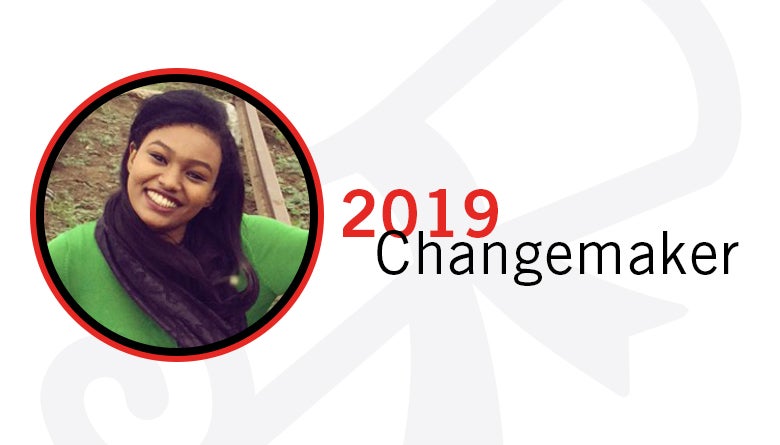Five years ago, Noon Farsab, her mother, and six brothers and sisters left their extended family and their close-knit neighborhood in Omdurman, a city in Sudan, and moved to the Boston area to reunite with her father. At the time, she knew almost no English.
Her dad, who had moved to the United States years earlier, was willing to contribute the money he made driving cabs to her education, so she began learning English wherever she could, including at Bunker Hill Community College.
“I wasn’t a resident at the time, so we had to pay for the classes, and my parents couldn’t afford more than two,” Farsab said. “There were also libraries around where I used to live, and they had free English classes. So I was like, ‘Why not?’”
Eventually, Farsab’s pursuit of education would lead her to the School of Engineering at Rensselaer Polytechnic Institute, a university with the motto, “Why not change the world?”
It was a natural fit for someone like Farsab, who never backs down from a challenge.
“When I set a goal, I just have to achieve that,” she said. “No matter what.”
In May, Farsab will achieve her goal of graduating with a degree in mechanical engineering. She’s gained experience doing research as an undergraduate, and already has a job lined up with Procter & Gamble.
Farsab did research in materials science and engineering, and applied sciences. In one of her internships, she designed a soft robot that had the ability to flip forward and backward and eventually climb and attach to other robots, acting similar to army ants.
Despite her incredible accomplishments, in a short amount of time, Farsab is not done learning. This may not even be her last degree from Rensselaer.
“I’m in love with this school, so I’ll probably come back and get a master’s degree,” she said.
In addition to launching her career, Farsab wants to take the skills she learned at Rensselaer and use them to help Al Thawra 18, the community where she grew up in Sudan. Many homes there lack clean running water and energy for cooking.
“I have been thinking about how to solve this,” Farsab said. “One of the solutions I’ve thought of is to use my mechanical engineering to design underground lines that can be used for gas and can be used for water.”
Farsab also wants to help her parents, who sacrificed so much for her education. And she hopes—above everything else, she said—to be a role model for her siblings.
“I want them to know that there is no challenge that they can’t overcome,” she said.


